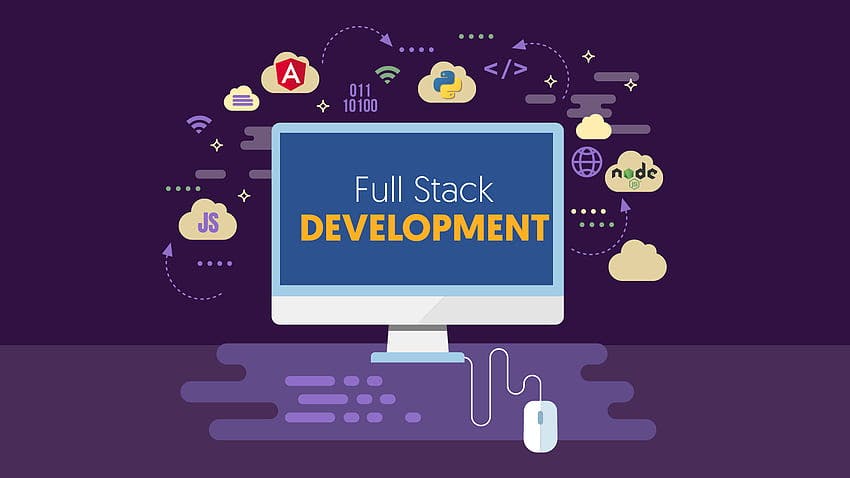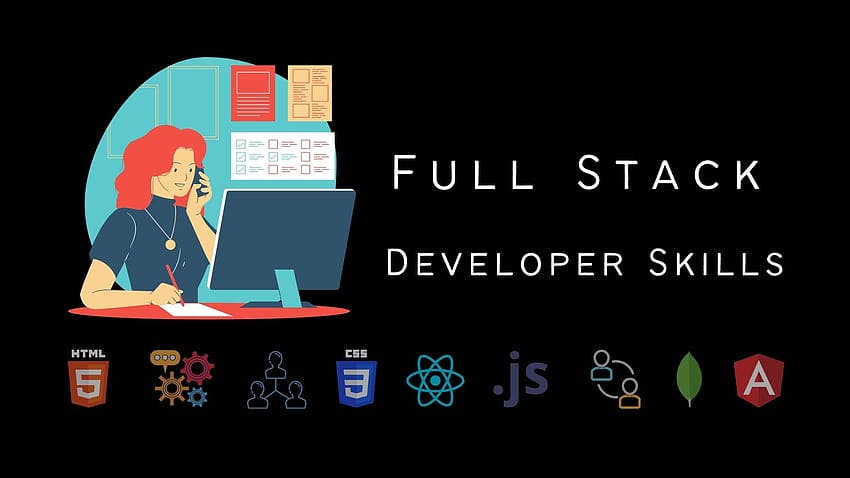Navigating the Full Stack: A Comprehensive Guide for Developers

Introduction:
In the realm of software development, Full Stack Development has emerged as a coveted skill set, offering developers the ability to build end-to-end web applications. Navigating the Full Stack requires a deep understanding of both front-end and back-end technologies, along with proficiency in various tools and frameworks. In this comprehensive guide, we'll delve into the intricacies of Full Stack Development, providing aspiring developers with a roadmap to master the Full Stack and excel in their careers.
Understanding Full Stack Development:
Front-End Development:
Front-end development involves building the user interface and client-side functionality of web applications. Key technologies include HTML for structure, CSS for styling, and JavaScript for interactivity. Front-end frameworks like React.js, Angular, and Vue.js enhance development efficiency and enable the creation of dynamic user experiences.
Back-End Development:
Back-end development focuses on server-side logic, database management, and handling requests from the client-side. Popular server-side languages include Node.js, Python, Ruby, and PHP, each accompanied by frameworks such as Express.js, Django, Ruby on Rails, and Laravel. Database systems like MySQL, MongoDB, and PostgreSQL are used to store and manage data efficiently.
Building a Strong Foundation:
Mastering Fundamentals:
Begin by mastering the fundamentals of both front-end and back-end development. Understand the core concepts of HTML, CSS, and JavaScript, and practice building simple web pages and applications. Similarly, gain proficiency in server-side programming languages and database management systems through hands-on projects and tutorials.
Version Control:
Version control systems like Git play a crucial role in Full Stack Development by enabling developers to track changes, collaborate with team members, and manage project versions effectively. Familiarise yourself with Git commands, workflows, and best practices, and utilise platforms like GitHub or GitLab for hosting repositories and collaborating with peers.

Developing Skills and Expertise:
Building Projects:
Hands-on experience is key to mastering the Full Stack. Start building projects of increasing complexity, incorporating both front-end and back-end components. Projects could range from simple personal websites to full-fledged web applications with user authentication, data persistence, and third-party integrations.
Continuous Learning:
The tech industry is constantly evolving, with new tools, frameworks, and best practices emerging regularly. Stay updated with the latest trends and advancements in Full Stack Development by reading tech blogs, watching tutorials, attending webinars, and participating in online communities. Continuous learning is essential for staying competitive and adapting to industry changes.
Advancing Your Career:
Specialisation:
As you gain experience in Full Stack Development, consider specialising in specific areas based on your interests and career goals. You may choose to focus on front-end technologies, back-end development, DevOps, UI/UX design, or specialised domains like machine learning or cybersecurity. Specialisation allows you to deepen your expertise and pursue career opportunities aligned with your interests.
Networking and Collaboration:
Build a strong professional network within the developer community by attending meetups, conferences, and networking events. Engage with fellow developers, share knowledge, seek mentorship, and explore collaboration opportunities. Networking not only expands your opportunities but also fosters personal and professional growth through shared learning and experiences.
Conclusion:
Embark on a journey of mastery in Full Stack Development with our comprehensive guide. Navigating the Full Stack demands dedication, perseverance, and a thirst for continuous learning. Master both front-end and back-end technologies, honing practical skills through hands-on projects. Stay abreast of industry trends to unlock the full potential of Full Stack Development. Whether you're a beginner venturing into the field or an experienced developer aiming to propel your career, our guide provides a roadmap to success. Embrace the journey, nurture your curiosity, and enrol in the best online Full Stack Developer Course in Dehradun, Kanpur, Kolkata, Agra, Delhi and all cities in India to pave your path to excellence.